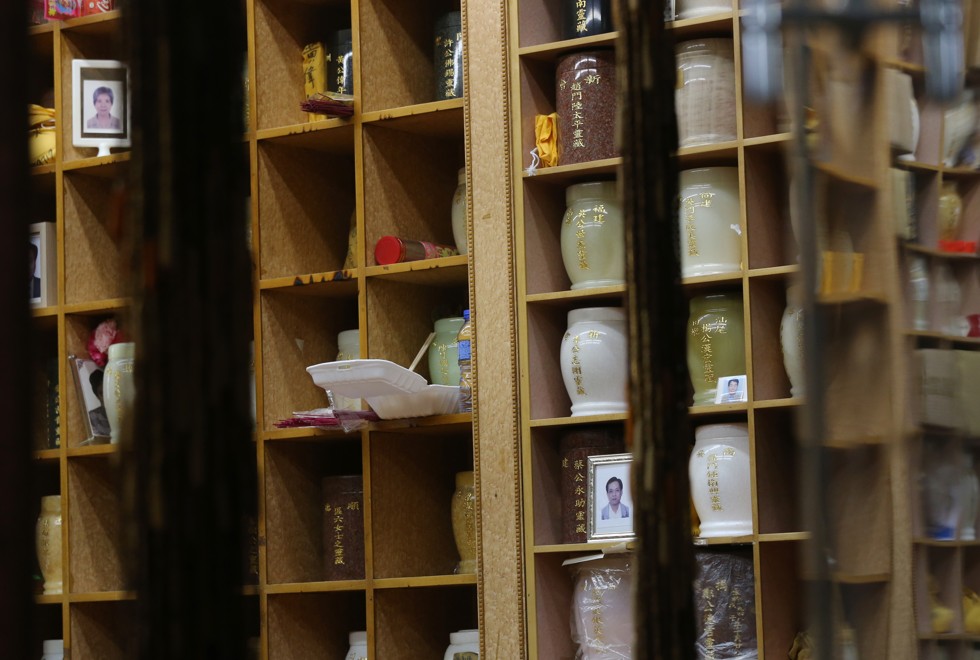
Hong Kong columbarium clients fail to get refunds as new law kicks in
Facilities storing remains will have to stop operating unless they get a government licence or waiver after a nine-month grace period
At least three columbarium customers recently failed to get refunds from temples as a new law regulating the business came into effect on Friday, with a concern group warning there could be many more such cases.
Alliance for Concern over Columbarium Policy convenor Eddie Tse Sai-kit, who fielded the complaints, said he believed this was the first sign that a massive displacement of remains might be on the cards.
Under the new law, columbarium owners have to apply for a government-issued licence or waiver to continue selling niches. Operators that have not been cleared by the government at the end of a nine-month grace period could face jail time and a fine of up to HK$5 million if they continue operating.
Only about 20 per cent of known private columbariums comply with land lease requirements, according to government records.
The new ordinance is expected to take a lot of facilities off the market, which means remains will have to be moved.
“I think customers are afraid that a columbarium operator won’t get a licence in future,” Tse said. “So they want to get their money back before then.”
But according to Tse, none of the three people he heard from received refunds. The customers declined to be interviewed.
Tse explained that many temples counted niche payments as donations so receipts did not help clients if they wanted to be reimbursed. One of the customers who contacted him said she paid HK$200,000 for a space.
It only costs about HK$2,900 to buy a niche at a government-run crematorium.
Ng Yiu-tong, who chairs the Funeral Business Association, warned these cases were likely to be the norm. “I don’t think most of the clients who have paid will get their money back if things don’t work out.”
Tse estimated that around 100,000 urns in unauthorised facilities could be affected after the grace period ends.
However, the government is taking steps to ease the problem. The Food and Environmental Hygiene Department plans to increase the number of spaces where people can temporarily store urns from 23,000 to 65,000 over the coming two years.
But if Tse’s estimates are correct, this expansion will only provide temporary storage space for about 65 per cent of the ashes that will be displaced by the new bill.
“It is not enough,” Tse said. “The government should have the responsibility to increase the supply of temporary storage spaces.”
The government reminded those who wished to purchase niches at private columbariums to check carefully if the operators had complied with all the requirements under the new law.
“To protect their own interests, members of the public are also reminded to ascertain from the operators ... whether and how they will refund or otherwise compensate their customers in cases in which the respective private columbarium subsequently closes down or is disallowed from operating,” a Development Bureau spokesman said.
He added 21 private operators out of 152 known to the government at the end of June were applying to the Lands Department for the regularisation of land use and the Town Planning Board for planning permission, which are essential for obtaining a licence



